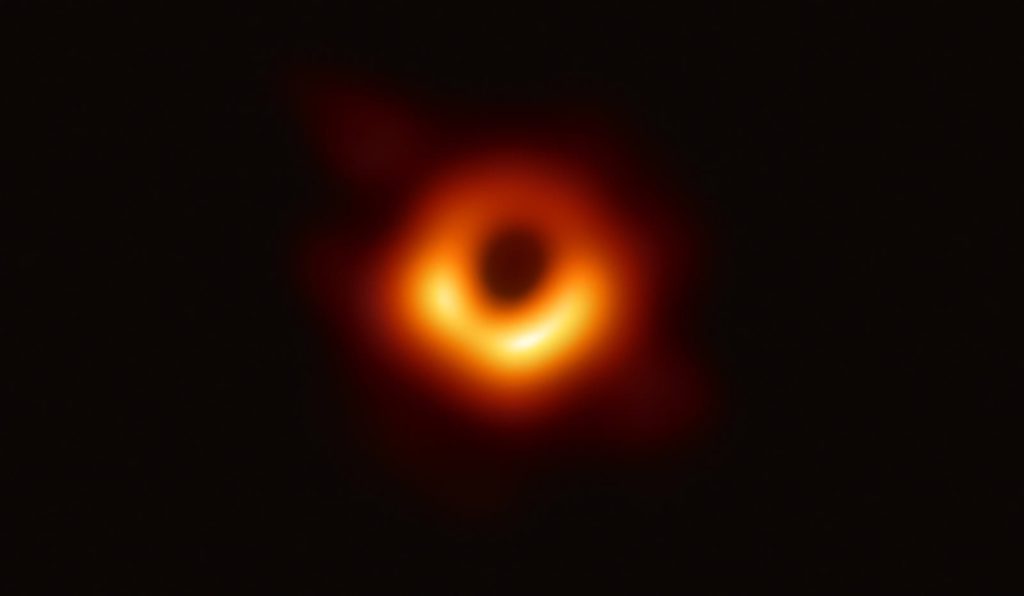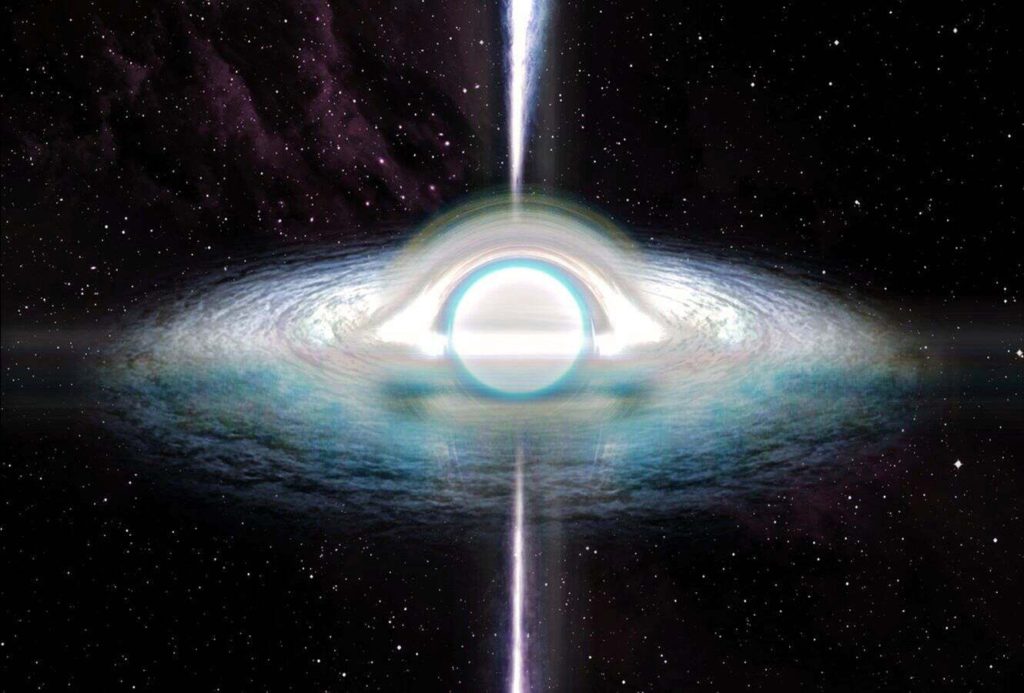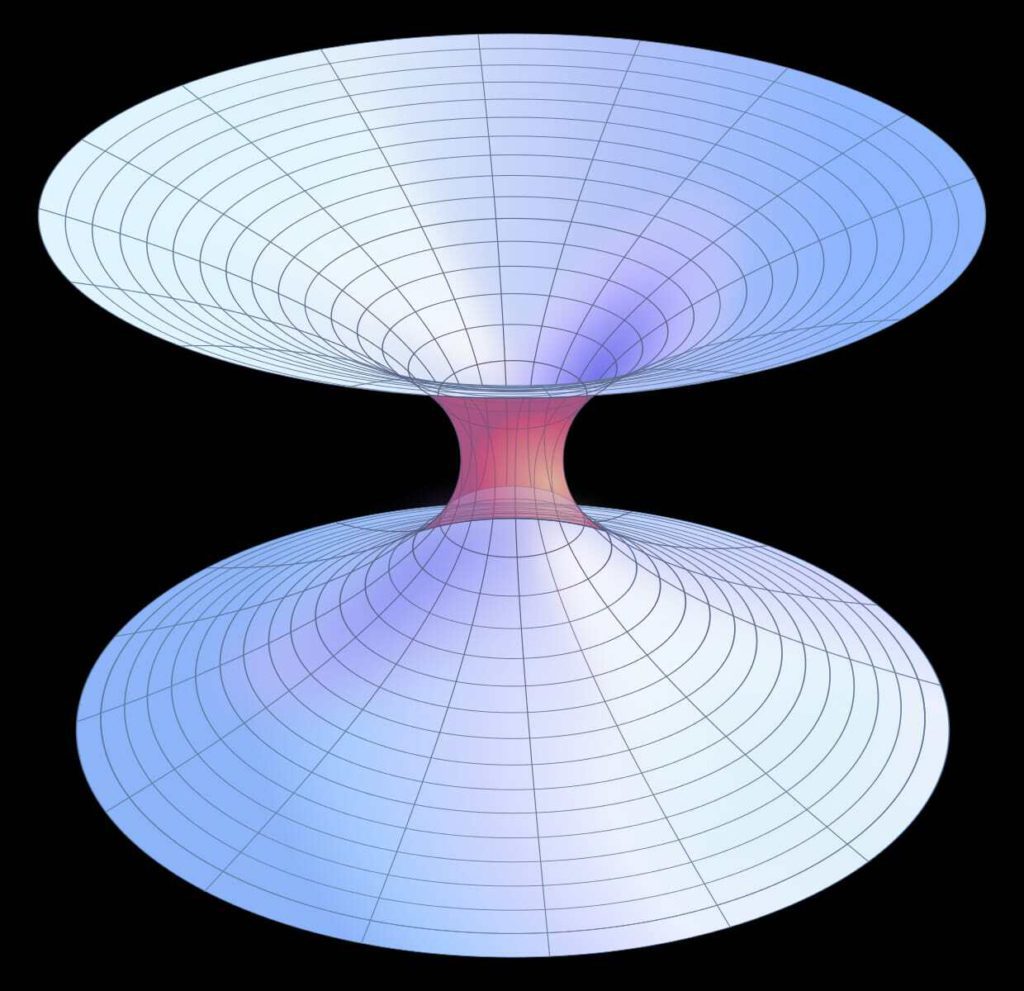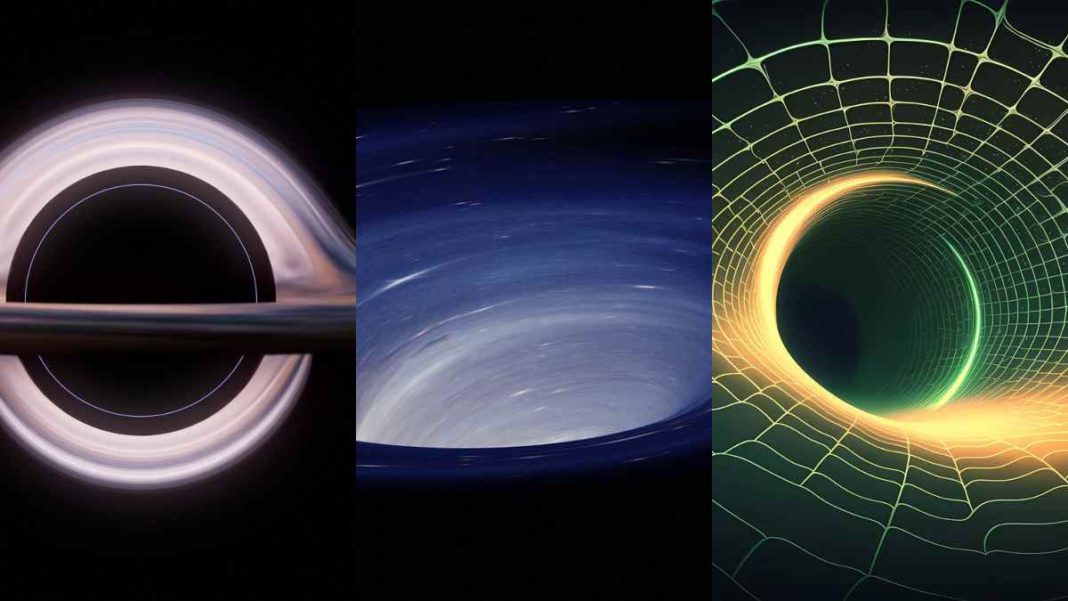UNITED STATES: Journey through the cosmic abyss by understanding black holes, white holes, and wormholes. Our universe is teeming with enigmatic celestial bodies that continue to captivate our imagination. From awe-inspiring stars and planets to mesmerizing exoplanets, nebulas, and black holes, many mind-bending entities are awaiting exploration.
While our understanding of the universe remains incomplete, leaving room for countless unknown phenomena, two intriguing concepts that pique scientific curiosity are white holes and wormholes.
Although lacking empirical evidence, it is worth noting that black holes were once purely theoretical until the remarkable first image was captured. Let us delve into the distinctions between black holes, white holes, and wormholes and explore the fascinating possibilities they offer.
Understanding the difference between black holes, white holes and wormholes
What is a black hole?

At the heart of a black hole lies an infinitely dense point known as a singularity. This singularity is surrounded by an event horizon, a boundary beyond which nothing can escape the gravitational pull of the black hole, not even light itself. As a result, black holes appear as regions in space with immense gravitational forces, absorbing all matter and energy within their reach.
How do we know it is a black hole?
Black holes possess several defining characteristics. Firstly, they exhibit immense gravitational forces due to their concentrated mass. Secondly, they have an event horizon, which defines the point of no return. Additionally, black holes can vary in size, ranging from stellar-mass black holes formed by the collapse of massive stars to supermassive black holes found at the centers of galaxies. So, in a nutshell, if you spot something revolving around a black empty-looking space, chances are that it’s a black hole.
Formation of black holes
Black holes can form through multiple processes. The most common occurs when a massive star exhausts its nuclear fuel and collapses under its gravity, leading to a supernova explosion. The core that remains collapses further, giving birth to a black hole. Other mechanisms, such as the collision of neutron stars or the accretion of matter onto a compact object, can also contribute to black hole formation.
What is a white hole?

In stark contrast to black holes, white holes are purely theoretical entities. They are hypothetical regions of spacetime that act as the reverse of a black hole. Instead of devouring matter and energy, white holes are believed to expel them, acting as sources rather than sinks of material.
How can we spot a white hole?
White holes, if they exist, would exhibit characteristics opposite to those of black holes. They would repel matter and energy, creating a repulsive gravitational field. However, no observational evidence has been found to support the existence of white holes in the universe.
Theoretical existence of white holes
While white holes have not been observed, their existence has been explored within the framework of general relativity. Theoretical models suggest that white holes could be connected to black holes through wormholes, allowing for a potential connection between the past and future (if you analyse it close enough, it violates the second law of thermodynamics).
Differences between black holes and white holes
The disparities between black holes and white holes are evident. Black holes are known to absorb matter and energy, while white holes would expel them. Additionally, black holes have an event horizon, whereas white holes are believed to have an event horizon in reverse, preventing anything from entering them.
What is a wormhole?

Wormholes are hypothetical tunnels connecting different points in spacetime, allowing for shortcuts between distant regions or even different universes. They are often depicted as tunnels or bridges that link separate parts of the cosmos, offering a theoretical means of traversing vast cosmic distances.
Wormholes are postulated solutions within the framework of general relativity. Like white holes, they remain purely theoretical. The concept arises from the bending and warping of spacetime, enabling a connection between two separate regions. However, traversable wormholes, which one could pass through without being crushed or encountering extreme gravitational forces, require the existence of exotic matter with negative energy density.
Characteristics of wormholes
Wormholes would offer a shortcut between two distant locations, enabling travel across vast cosmic distances in a shorter time. However, their theoretical properties also raise questions about their stability, energy requirements, and the chances of creating time loops or paradoxes.
Black Holes vs. White Holes vs. Wormholes
While all three entities exist within the realm of theoretical physics, they differ significantly. Black holes are characterized by their immense gravity and absorption of matter, white holes are hypothetical sources that expel matter, and wormholes are tunnels that connect distant regions of spacetime, allowing for shortcuts.
Theoretical possibilities and implications
The existence of black holes, white holes, and wormholes challenges our understanding of the laws of physics and the nature of spacetime. Exploring their properties could shed light on the fundamental forces governing the universe and pave the way for revolutionary advancements in science and technology.
Scientific research and observations
Scientists continue to study black holes, white holes, and wormholes through a variety of methods. Observational astronomy, numerical simulations, and theoretical modeling contribute to our understanding of these cosmic phenomena. Advances in technologies, such as gravitational wave detectors and space-based telescopes, provide valuable insights into their nature and behavior.
Conclusion
In the vast cosmic tapestry, black holes, white holes, and wormholes stand as enigmatic entities that stretch the boundaries of our comprehension. While black holes have been observed and studied extensively, white holes remain theoretical, and wormholes exist as tantalizing possibilities. Exploring these cosmic wonders fuels our curiosity and fuels scientific progress as we strive to unravel the mysteries of the universe.
FAQs
Q: Is a wormhole stronger than a black hole?
A: Wormholes and black holes are different phenomena and can’t be directly compared in terms of strength.
Q: Is a white hole more powerful than a black hole?
A: White holes are theoretical, and their power can’t be directly compared to black holes.
Q: Can a white hole exist?
A: White holes are theoretical, and their existence is still uncertain.
Q: What is inside a white hole?
A: We don’t know the internal structure of white holes as they are hypothetical.
Q: Can anything beat a black hole?
A: No known objects can easily overcome a black hole’s gravitational force.
Q: Who is the strongest black hole?
A: Supermassive black holes are the most massive known in the universe.
Q: What is a red hole?
A: “Red hole” is not a recognized astronomical term.
Q: What are grey holes?
A: “Grey holes” is not a recognized scientific term in astrophysics.
Also Read: NASA’s Juno Probe Reveals Startling Similarities in Lightning Processes Between Jupiter and Earth



